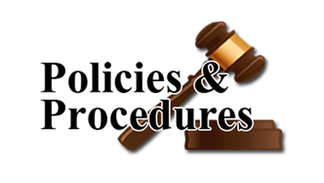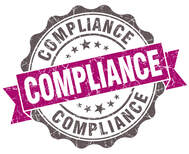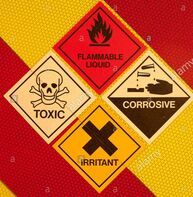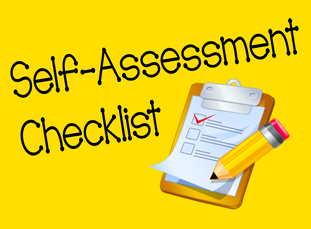|
Upcoming Training Events
Click on the picture for registration and more information. |
Why is Training so Important?
|
|
June 5th and 12th
Use of Force Review How, Why, and Benefits? June 11th, 18th, and 25
Defining a Leader Series |
Training by Pursuit of Excellence will give your staff the knowledge they need to do the job in an effective and consistent manner. Effective training is your agency's first defense in preventing potential litigation. At Pursuit of Excellence, our consultants and trainers are the best in their field. We do not only provide you with the training you need, we are always here for you after you attend one of our training events. We will continue to be a resource for you long after you attend our training.
Training is what gives our staff the ability and skills to perform their jobs and work at their highest capability. Effective training is what enables agencies and their staff in their Pursuit of Excellence. That's why we included Pursuit of Excellence in our name. Training at Pursuit of Excellence is second to no one! We provide your agency with the best training possible at an affordable cost. Our training is provide through live webinars, videos, conferences, and on-site at your agency. Our On-Site Training Program will save you travel expenses and missed time from work while allowing you to provide the training to a larger number of your staff. Click on the link for more information about the Pursuit of Excellence On-Site Training Program or contact us at [email protected]. |
On-Site Training by Pursuit of Excellence!
We bring the training to you, saving you money!
We bring the training to you, saving you money!
You may want to consider our On-Site Training Program where we will bring the training offered at conference, summits, etc. to your agency. By bringing the training to you, our program allows more staff to receive important and needed training that will greatly benefit the agency. By providing a daily rate for the training, you can allow as many staff attend the training as you wish, and your facilities allow. Since the On-Site Training Program is presented specifically to your agency, the information presented will be focused on your agency and/or facility's specific services, programs, operations, and needs. Having training related specifically to your agency's needs we are able to provide training that will have the greatest impact your staff. Attendees will receive a certificate upon completion. Click the link below to view more information on our On-Site Training Program.

Policy and Procedure Development and Review: This training includes methods on how to write effective policies and procedures using the experience and knowledge of your staff from leadership to line staff. The training session also discusses ways of conducting an annual review of your policies which go far beyond reading the policy. Attendees will learn how to use the methods from policy development and review to improve staff morale as well as ensuring your processes meet your policies and procedures. It is recommended that department heads and well as supervisors who are vital to the agency’s success in attaining and maintain accreditation attend this session.
File Preparation: Whether you use paper or electronic files, attendees will understand what it takes to develop excellent files that are auditor/assessor friendly. During the training attendees will learn the benefits of both electronic and paper files. If your agency is looking at going electronic, we will discuss some options that are cost effective.
|
How to conduct a Self-Assessment: Self assessments are vital to an agency’s continued growth and success while ensuring there are no inefficiencies in our operations and/or services provided. Self-assessments should be completed annually to identify positive as well as negative concerns. Often, when conducting a self-assessment, agencies identify things that work and things that do not. Ultimately, conducing a self-assessment can and will save you time and money while helping you to improve your agency. More importantly, self-assessments will help you identify problems before the problems happen or cause liability issues. Additionally, self-assessments will aid you in preparing for accreditation audits/on-sites by identifying any issues before the auditors/assessors arrive. It is recommended that department heads and well as supervisors who are vital to the agency’s success in attaining and maintain accreditation attend this session.
|
Accreditation Manager’s Training: This training will give the Accreditation Managers and those who work with the accreditation manager a better understanding of what it takes to fulfill the responsibilities associated with their position. During the training attendees will learn how to teach others about accreditation and how their roles are important to the process. After completing this training session, the attendees will understand what it takes to manage accreditation. It is recommended that department heads and well as supervisors who are vital to the agency’s success in attaining and maintain accreditation attend this session.
Defining, Understanding and Breaking Down Standards: Attendees in this training will learn how to breakdown and understand the standards. Often people do not understand how to break standards down causing them to miss things in policies and procedures as well as in proofs of compliance files. This training is a must in order to ensure you apply all parts of the standards as well as provide proofs of compliance for all aspects of the standard. Attendees will learn to identify key words within the standard and how to breakdown standards.

Identifying Proofs of Compliance: Attendees will learn how to ensure the proofs of compliance provided in files meet and prove the agency policy and procedures as well as accreditation standard. Having good proofs in the file is vital during an audit/onsite. Having the right proofs of compliance ensures that the accreditation files provides proof that the agency processes, policies and procedures meet the standards.
Identifying Proofs of Compliance: Attendees will learn how to ensure the proofs of compliance provided in files meet and prove the agency policy and procedures as well as accreditation standard. Having good proofs in the file is vital during an audit/onsite. Having the right proofs of compliance ensures that the accreditation files provides proof that the agency processes, policies and procedures meet the standards.
Looking Through the Eyes of an Auditor/Assessor: This training helps attendees understand what an Auditor is looking for while conducting an audit/assessment. Accreditation Managers, supervisors, department heads should all attend this training session so they will better understand what auditors/assessors are looking for. It will greatly aid agencies in ensuring a successful audit/assessment and better prepare them for answering any questions the auditor/assessor may have.

What to do when the Auditor/Assessor Arrives: It is important to remember that the Audit/Assessment begins when you pick the Auditor/Assessor up at the airport. This training will give you some insight on what to do when the auditor/assessors arrive and immediately after they arrive. Remember, the first impression sets the tone and most always last the longest.

How to Deal with Auditors/Assessors: This training will provide your staff with the knowledge and information which will aid them in preparing for and working with auditors/assessors. We will begin with what to do once the accrediting agency has made you aware of who the auditors will be until the audit/assessment is complete and the auditors/assessors have been dropped off at the airport. This includes a period of time after the onsite audit/assessment is completed.
Dealing with the Difficult Auditor/Assessor: We have all heard the stories about the auditor/assessor who was just hard to deal with and seemed to want to find fault in everything or wanted us to do things their way. Auditors/assessors have a job to do and so do you. Part of your job is keeping the auditors/assessors in line. This can be difficult, but we will teach you how. This training will help you understand what your options are and how to deal with difficult auditors/assessors.

Guiding the Auditor/Assessor: Attendees will learn how to guide the Auditor/Assessor in understanding your operations and why things are the way they are. There are times when an auditor/assessor may question whether or not your agency meets a standard. Many times, the auditor/assessor do not understand why your agency does something the way it does. There may be other laws, regulations or requirements that require you to do something different than the standard. The auditor/assessor simply may not know or understand it.
How to get information out of the Auditors/Assessors: It is important to get as much information out of the auditors/assessors as you can. Most auditors/assessors have seen or experienced most everything that has or can happen. The have years of experience and are willing to offer you suggestions and helpful advice. It is very important that get as much information out of them as possible when you feel there may be something that does not meet the standard or feel the auditors/assessors have a concern.
Preparing for an Audit/Assessment: Attendees will learn how to prepare your agency for an audit/assessment. Part of this training session will include how to conduct a self-assessment. This is a must in order to ensure a smooth audit. Without this, you are most often guaranteed there will be issues identified that would have been prevented. This training includes how to plan the facility tour, preparing strategic display (Generally for CALEA, but would be beneficial for ACA as well). During this training, we will discuss how to inspect your accreditation files to ensure there are not discrepancies.
|
|
Tools, Equipment and Kitchen Utensil Control: Tool and equipment control is one of the major issues facing agencies. We will discuss the importance of tool and equipment control and cover many ways you can ensure you meet this standard. Attendees will learn ways to store and maintain accountability for tools, equipment and kitchen utensils. During the training, we will review and discuss various ways to inventory
|

Lethal and Less Lethal Devices and Restraint Systems: There are standards that stipulate how and where these items are stored and maintained. Attendees will learn how to ensure they are compliant with accreditation standards. Storage and accountability of less than lethal equipment and munitions fall under a mandatory standard for corrections. It is important to ensure your method of inventory, storage and issuance is conducted in an acceptable manner. Attendees will gain the knowledge necessary to ensure the systems their agency uses will be in compliance with standards.

Flammable, Toxic and Caustic Materials: This is also known as the Big Three. This is one of the areas where many agencies struggle. Attendees will learn the importance of this standard and how you can ensure you meet it. They will also learn various ways to store and maintain accountability.
General Accreditation for Staff: Staff may not understand the importance of accreditation and how it impacts them. This training is generally done during shift briefings and informs staff of how accreditation benefits them and impacts them in a positive manner. Accreditation is not additional work but is a verification that we are doing our job correctly. This training is also developed to be presented at different levels such as line staff, mid-level leadership, command staff and government officials.
Responding to Non-Compliant Findings: Often during audits/assessments, agencies are found non-compliant with specific standards. Most often the reasons for non-compliance is at no fault of the agency but is due to the facility structure or other reasons beyond the control of the agency. In such cases, an agency may request a waiver or accept the non-compliance. This training is very important for your agency and give you information on how to respond to non-compliant standards as well as complete waiver request.
Additional Training: We will develop specialized training based upon agency requests and needs. Please contact us to discuss additional training needs or requests.


